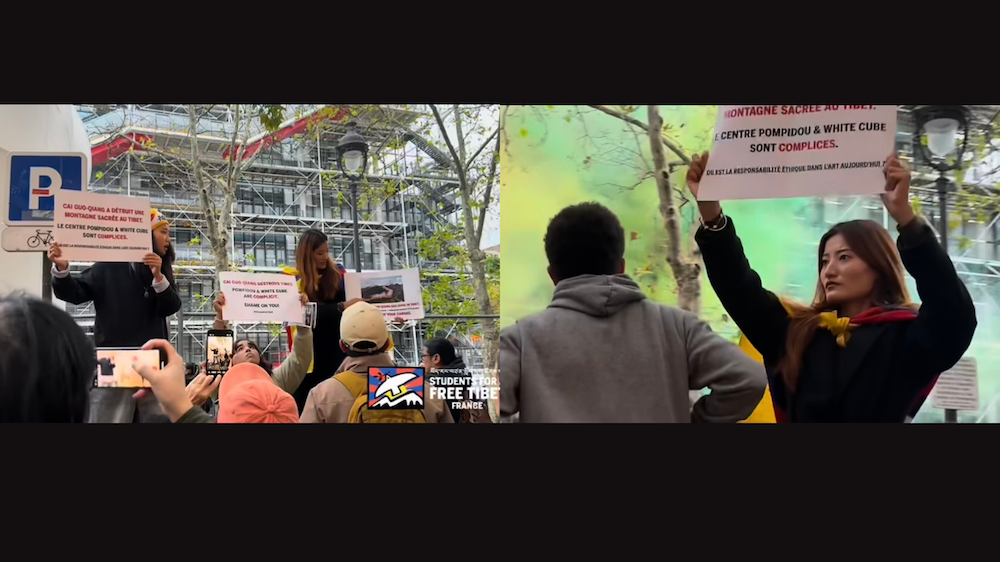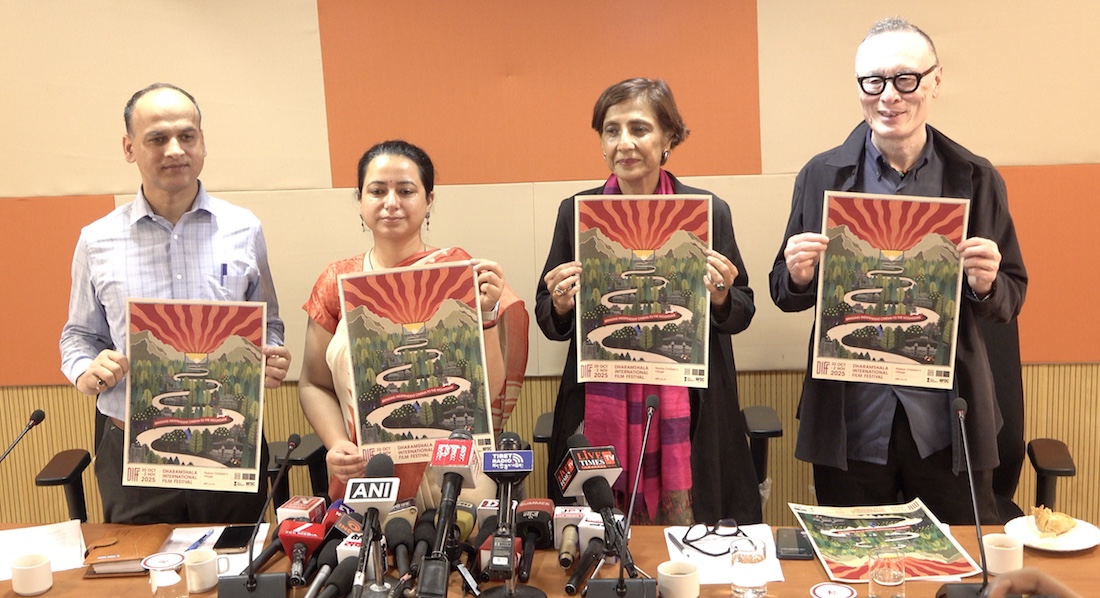By Phurbu Thinley
 Dharamsala, March 10: Exiled Tibetan leader the Dalai Lama Tuesday said the middle-way policy of seeking genuine autonomy for Tibet was now being pursued with “greater confidence” and added that he would continue to uphold his responsibility to work for Tibet.
Dharamsala, March 10: Exiled Tibetan leader the Dalai Lama Tuesday said the middle-way policy of seeking genuine autonomy for Tibet was now being pursued with “greater confidence” and added that he would continue to uphold his responsibility to work for Tibet.
The Dalai Lama said that the Special Meeting of Tibetan exiles convened in November 2008 was held in order to “solicit public opinion” to decide future course of action for Tibet.
His Holiness also said that the meeting had to be held as instead of achieving concrete results in the Sino-Tibetan dialogue process, there had been brutal crackdown by China during the spring unrest last year in Tibet.
“The outcome of this whole process was that a majority of Tibetans strongly supported the continuation of the Middle-Way policy.”
“Therefore, we are now pursuing this policy with greater confidence and will continue our efforts towards achieving a meaningful national regional autonomy for all Tibetans,” the Dalai Lama said.
The Tibetan leader was speaking at an official function in Dharamsala, the seat of Tibet’s Government in exile, marking the 50th Anniversary of Tibetan Uprising.
Dalai Lama, however, maintained that the “sincere efforts” made by the Tibetan side had been met with indifferent attitude from the Beijing government.
 “I am disappointed that the Chinese authorities have not responded appropriately to our sincere efforts to implement the principle of meaningful national regional autonomy for all Tibetans, as set forth in the constitution of the People’s Republic of China,” the Dalai Lama said.
“I am disappointed that the Chinese authorities have not responded appropriately to our sincere efforts to implement the principle of meaningful national regional autonomy for all Tibetans, as set forth in the constitution of the People’s Republic of China,” the Dalai Lama said.
“The Chinese insistence that we accept Tibet as having been a part of China since ancient times is not only inaccurate but also unreasonable. We cannot change the past no matter whether it was good or bad.
“Distorting history for political purposes is incorrect,” he said.
“We Tibetans are looking for a legitimate and meaningful autonomy, an arrangement that would enable Tibetans to live within the framework of the People’s Republic of China. Fulfilling the aspirations of the Tibetan people will enable China to achieve stability and unity.”
“From our side, we are not making any demands based on history,” the Dalai Lama said.
The Tibetan leader described Tuesday’s anniversary as “fiftieth anniversary of the Tibetan people’s peaceful uprising against Communist China’s repression in Tibet.” A failed uprising in 1959 forced the Dalai Lama and thousands of Tibetans to flee into exile in India.
“These 50 years have brought untold suffering and destruction to the land and people of Tibet. Even today, Tibetans in Tibet live in constant fear and the Chinese authorities remain constantly suspicious of them,” the Dalai Lama said.
“Having occupied Tibet, the Chinese Communist government carried out a series of repressive and violent campaigns,” the Dalai Lama said.
“These thrust Tibetans into such depths of suffering and hardship that they literally experienced hell on earth. The immediate result of these campaigns was the deaths of hundreds of thousands of Tibetans. The lineage of the Buddha Dharma was severed. Thousands of religious and cultural centres such as monasteries, nunneries and temples were razed to the ground.”
“Today, the religion, culture, language and identity, which successive generations of Tibetans have considered more precious than their lives, are nearing extinction; in short, the Tibetan people are regarded like criminals deserving to be put to death,” the Dalai Lama said.
“Since last March widespread peaceful protests have erupted across the whole of Tibet. Most of the participants were youths born and brought up after 1959 and have not seen or experienced a free Tibet,” the Dalai Lama said reading His statement prepared for the occasion.
In the statement the Dalai Lama insisted Tibetans to “continue to tread the path of truth and non-violence” saying he had “no doubt that the justice of Tibet’s cause will prevail” in the final run.
The Dalai Lama said since 2001, after instituting a system by which the political leadership of Tibetan exiles was directly elected by the people, his daily administrative responsibilities have reduced to a state of semi-retirement one.
“However, to work for the just cause of Tibet is the responsibility of every Tibetan, and I will uphold this responsibility,” the Dalai Lama said.









